South Carolina IDeA Networks of Biomedical Research Excellence
SC INBRE is funded through a $18.9 million grant from the National Institutes of Health (NIH) IDeA Networks of Biomedical Research Excellence (INBRE) and is comprised of 14 member institutions which aims to increase the research capacity in the biomedical sciences across the state. As a member institution, USC Upstate will receive more than $500,000 to support a summer research program called ER(Up)T (Engaged Research and Training at Upstate) from 2020-2025.
ER(Up)T: Engaged Research and Training at Upstate
ER(Up)T provides an opportunity for students interested in pursuing careers in the biomedical sciences (biology, chemistry, pre-professional) to participate in faculty-mentored research projects during the summer at USC Upstate. In addition to the faculty-mentored research projects, students will participate in enrichment activities that are designed to help inform and prepare students for opportunities in their chosen field. The ER(Up)T program will include multiple workshops designed to help students not only learn about exciting opportunities in the sciences but also build impressive applications and resumes for future professional, graduate school, and job applications.
Click on plus button at the bottom of this Accordion BLOCK (not accordion tab) to create a new tab. Select Accordion TAB block to edit tab headline. Select nested blocks within accordion tab to edit content.
-
Applications are no longer being accepted for the 2024 ER(Up)T Summer Program.
Who is eligible?
Simply put – any continuing USC Upstate Student! Unfortunately, students graduating in Spring or Summer 2024 are not eligible.
The program is designed for students who are interested in pursuing careers in the biomedical sciences including biology, chemistry, and all pre-professional tracks (pre-med, pre-dental, etc.). If you are not sure about your future goals and want to know what opportunities there are with a biology or chemistry degree, apply for this program!
Students from underrepresented groups (Blacks or African Americans, Hispanics or Latinos, American Indians or Alaska Natives, Native Hawaiians, and other Pacific Islanders) and those from economically disadvantaged backgrounds are especially encouraged to apply.
How do I apply?
Before you apply, we suggest that you discuss research projects with participating USC Upstate faculty that you may be interested in working with. This will greatly increase your chances to be selected into the program. It is advised that you should contact faculty members directly to schedule a meeting to further discuss research opportunities. You will be asked to rank your top two choices in the application – so please, reach out to multiple participating faculty mentors.
-
Below are the participating faculty, their contact information, field of research, and a link to a short introductory video.
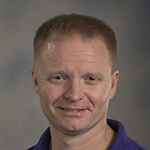
Bradley Baumgarner, Ph.D.
Associate Professor of BiologyThis summer we will determine whether the environmental endocrine disruptor tolylfluanid differentially impacts insulin-dependent mitochondrial function and protein synthesis in skeletal muscle cells from healthy and obese subjects.
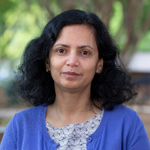
Anita Nag, Ph.D.
Assistant Professor of ChemistryArea(s) of Research: Biochemistry
Dr. Nag’s research focuses on understanding protein-protein and protein-RNA interactions in host cells during a viral infection.
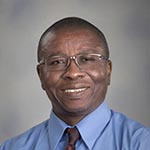
Anselm Omoike, Ph.D.
Associate Professor of ChemistryArea(s) of Research: Environmental & Analytical Chemistry
Dr. Omoike’s research interests center around the surface modification of magnetic iron nanoparticles and applications of modified nanoparticles as recyclable sorbents for drug delivery (such as curcumin, a cancer prevention and therapeutic drug) and for the removal of allergens from food.
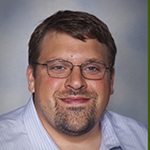
Joshua Ruppel, Ph.D.
Professor of ChemistryArea(s) of Research: Organic & Medicinal Chemistry
Dr. Ruppel’s research focuses on the synthesis of and development of methods to create glycoconjugated porphyrins, bacteriochlorins, phthalocyanines, and related macrocycles for biomedical applications such as photodynamic therapy.
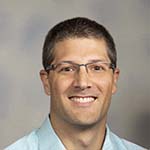
Scott Tanner, Ph.D.
Assistant Professor of BiologyArea(s) of Research: Genetics and Developmental Biology
Dr. Tanner uses the model organism C. elegans and human cell lines in culture to study in the development of the intestine in the context of inflammatory bowel disease and necrotizing enterocolitis.
